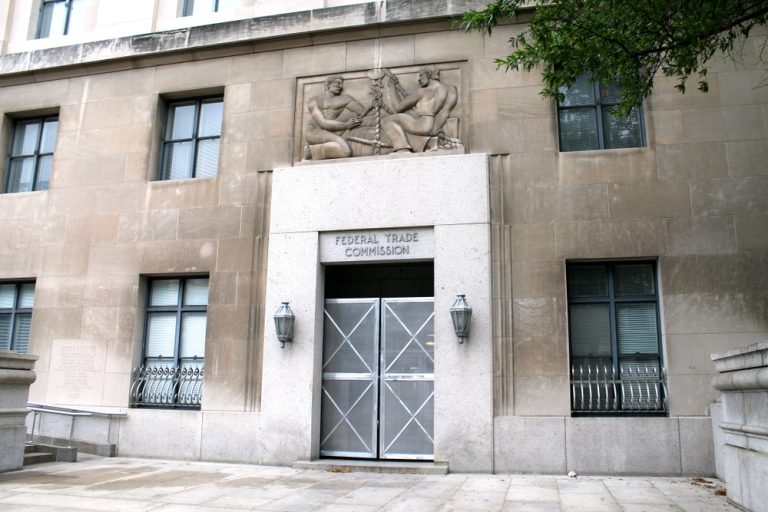Ethical Considerations in Engaging and Working with Expert Witnesses
Ethical Considerations in Engaging and Working with Expert Witnesses
Originally published in the Alabama Defense Lawyers Association Journal, Fall 2017, Vol. 33, No. 2
Expert Witness Fee Agreements
There are two rules of professional conduct in Alabama that pertain to the payment of fees to an expert witness. Rule 3.4(b), Ala. R. Prof. Cond., states in part that “[a] lawyer shall not … offer an inducement to a witness that is prohibited by law,” and Rule 5.4 (a), Ala. R. of Prof. Cond., states in part that “[a] lawyer or law firm shall not share legal fees with a nonlawyer.”
A formal opinion by the General Counsel of the Alabama State Bar – Alabama State Bar Ethics Opinion RO-97-02 – addresses generally the circumstances under which an attorney can pay or compensate a witness, lay or expert, for testifying at trial or by deposition. As to expert witnesses, the opinion states simply that “[a]n attorney may pay an expert witness a reasonable and customary fee for preparing and providing expert testimony, but the expert’s fee may not be contingent on the outcome of the proceeding.”
Besides creating a risk of disciplinary action against the lawyer, a violation of these ethics rules could result in the exclusion of the expert’s testimony at trial, or possibly “only” the lesser penalty of an instruction to the jury that the contingency fee agreement can be considered in weighing the credibility of the expert. The exclusion of the expert’s testimony has been ordered by federal judges in Maryland and New Jersey. See Farmer v. Ramsay, 159 F.Supp. 2d 873 (D. Md. 2001) and J&J Snack Foods v. Earthgrains Co., 220 F. Supp.2d 358 (D.N.J 2002). In contrast, the Seventh Circuit Court of Appeals has opined that while employing an expert witness on a contingency-fee basis is clearly unethical, the expert’s testimony need not be excluded, because “[t]he trier of fact should be able to discount for so obvious a conflict of interest.” Tagatz v. Marquette University, 861 F.2d 1040, 1042 (7th Cir. 1988).
The difficulty in affording the cost of expert witnesses in complex cases has led litigants to consider a “package deal” with a consulting firm that is designed to avoid these ethical prohibitions. The consulting firm offers its services on a contingent-fee basis, with these services including locating and hiring one or more expert witness, and with the proviso that the consulting firm will compensate the expert witness on a per diem or other non-contingency basis.
In some jurisdictions, this arrangement is regarded simply as an artifice that does not solve the inherent problems with fee-splitting and the integrity of the civil litigation process. See, e.g., Florida Professional Ethics Committee Opinion 98-1 (March 27, 1988) and Pennsylvania Bar Association Committee on Legal Ethics and Professional Responsibility, Informal Opinion 9579 (1995). This arrangement has been permitted in other jurisdictions, including our neighboring State of Mississippi, at least so long as the fees are not paid out of the lawyer’s contingency fee award and the lawyer’s client approves the arrangement. See, e.g., Mississippi State Bar Opinion No. 91 (March 23, 1984); see also Schackow v. Medical-Legal Consulting Service, Inc., 416 A.2d 1303, 1313 (Md. 1980).
Finally, a contingency-fee agreement with a consulting expert who is not engaged to testify at trial does not implicate the concern about offering an improper inducement to a witness. Any concern about the splitting of fees between a lawyer and a non-testifying consultant can be avoided by an agreement that the consultant’s fee will be paid out of the client’s recovery. This type of arrangement has been approved in Michigan and in the District of Columbia. See Committee on Professional and Judicial Ethics of the State Bar of Michigan, Informal Opinion R1-104 (October 31, 1991); see also District of Columbia Ethics Opinion No. 233 (January 1993).
Protecting the Confidentiality of Client Information
Rule 1.6 of the Alabama Rules of Professional Conduct obligates a lawyer to keep a client’s confidences, stating that “[a] lawyer shall not reveal information relating to the representation of a client unless the client consents after consultation, except for disclosures that are impliedly authorized in order to carry out the representation.”
Rule 1.6(a), Ala. R. Prof. Cond. The comments to this rule observe that the “principle of confidentiality is given effect in two related bodies of law, the attorney client privilege (which includes the work product doctrine) in the law of evidence and the rule of confidentiality established in professional ethics.”
Maintaining the confidences of a client is important when communicating with potential expert witnesses. Before beginning the search for an expert witness, a lawyer should confer with his client about the information that can be shared with a potential expert. The execution of a nondisclosure agreement should be carefully considered, particularly if the lawyer expects to disclose information that is protected by laws such as HIPAA, the Fair Credit Reporting Act, and state privacy laws. A lawyer should continue to attend to the obligation of confidentiality once an expert has been engaged. While most jurisdictions recognize that expert witnesses have their own duties to maintain the confidentiality of information learned during the engagement, a non-lawyer expert should not be responsible for making determinations about legal privileges. See, e.g., Crenshaw v. MONY Life Ins. Co., 318 F. Supp. 2d 1015, 1027 (S.D. Cal. 2004).
Courts have recognized that “[l]awyers bear a burden to make clear to consultants that retention and a confidential relationship are desired and intended.” State ex rel. Billups v. Clawges, 620 S.E.2d 162, 168 (2005) (quoting Wang Labs., Inc. v. Toshiba Corp, 762 F. Supp. 1246, 1248 (E.D. Va. 1991)). In considering whether a confidential relationship existed between a lawyer and a consulting expert, a Texas Court of Appeals identified a number of factors that had been recognized as important, including:
- Whether a formal confidentiality agreement existed;
- Whether the relationship was a long-standing one involving frequent contacts, or if there had been only a single interaction;
- Whether the expert was paid a fee;
- Whether work product was discussed with the expert; and
- The extent to which the expert learned about litigation strategies. Formosa Plastics Corp., USA v. Kajima Int’l, Inc., 216 S.W.3d 436 (Tex. App. 2006).
In sum, the lawyer’s duty of keeping a client’s confidences extends to the lawyer’s disclosures to a potential or actual expert witness, and the lawyer has an ethical obligation to ensure that the expert recognizes that information provided to the expert must be treated confidentially. The lawyer should address confidentiality at the outset of the engagement, and take care to draft an engagement letter that sets out the duties of the expert and the expectation of the lawyer and the lawyer’s clients about the expert’s handling of confidential information.
Expert Witness Conflicts of Interest
Where expert witnesses are concerned, issues of loyalty and conflicts of interest tend to involve a couple of scenarios. One such scenario is an expert witness who undertakes at one time to work both for and against a party in two different lawsuits, or at least for and against a particular lawyer in two different lawsuits. The second scenario is an expert who “switches sides” in a single case.
There is no question that it is ethically improper for a lawyer to undertake the representation of a client in a matter that is directly adverse to another of the lawyer’s existing clients. And, certainly, a lawyer cannot undertake to represent a plaintiff in a lawsuit, then withdraw and become the lawyer for the defendant in that case. The rules of professional conduct that govern lawyers do not apply, however, to expert witnesses. Indeed, an expert is not expected to act as an advocate for the client, but rather is expected to be an independent and objective witness on matters outside a jury’s collective common sense and knowledge.
When, then, do conflict of interest questions arise for expert witnesses? If an expert received confidential information from a litigant in one lawsuit, and then the expert is engaged in another lawsuit in which that confidential information could be used against that same litigant, this litigant certainly would alarmed about the potential violation of its confidential relationship with the expert. A litigant who is distraught about its “cheating” expert can be expected to demand a divorce, but ending the relationship does not eliminate the threat of the discharged expert’s misuse of the litigant’s confidential information. The solution is to obtain an order barring the expert








